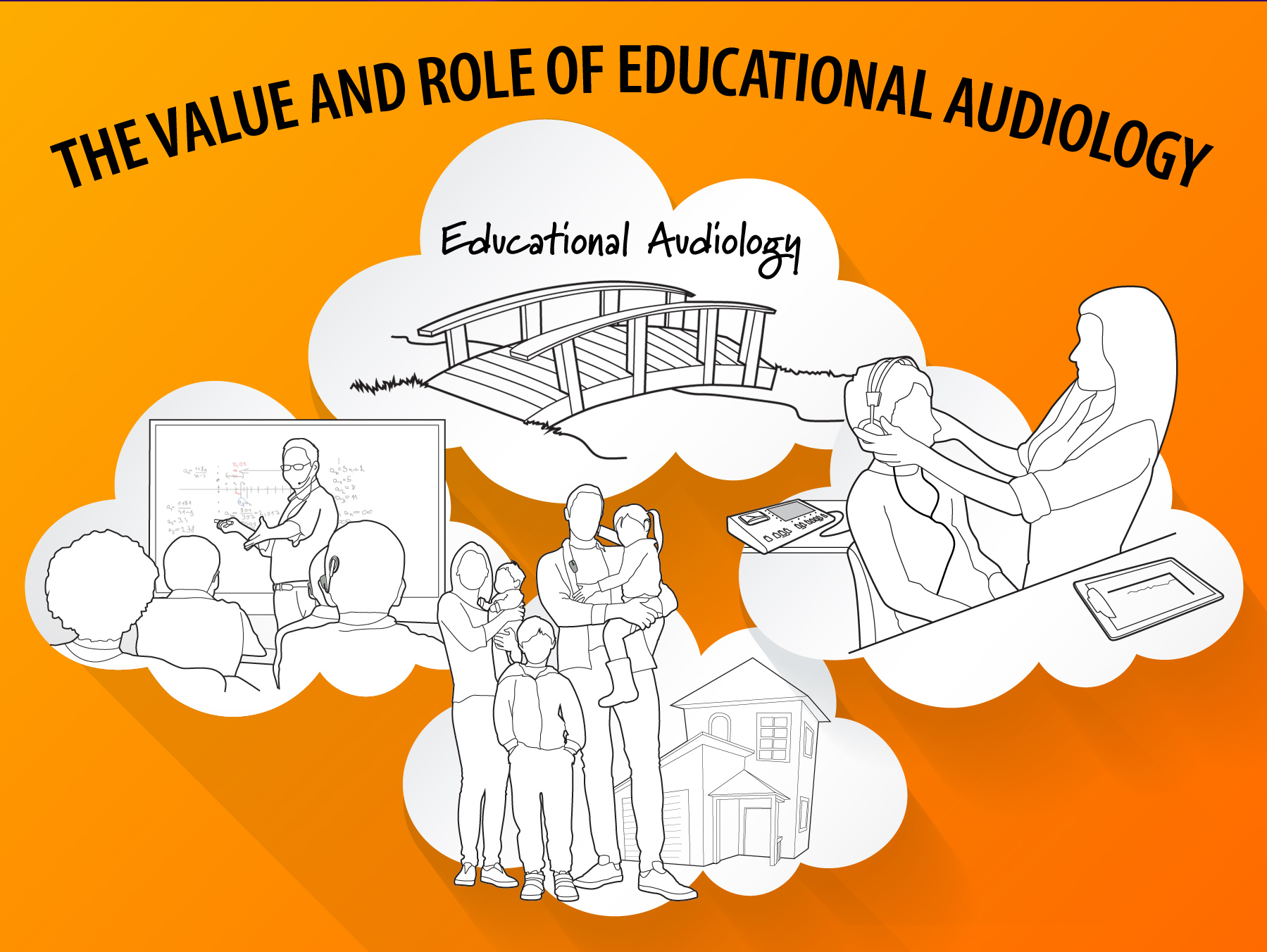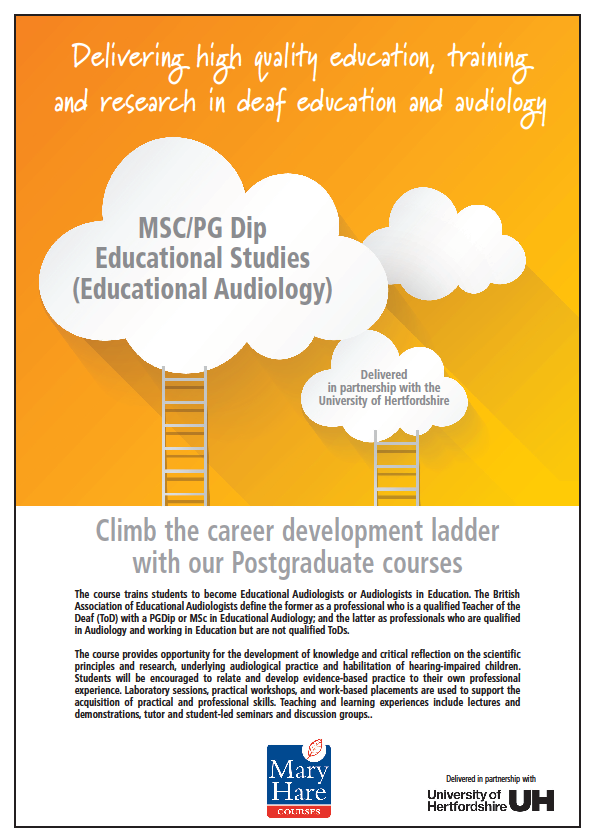 Graphic courtesy of Mary Hare
Graphic courtesy of Mary Hare

How to study to become an Educational Audiologist
The only course in Europe is situated near Newbury, Berks on the Mary Hare School campus. Mary Hare is partnered with the University of Hertfordshire to offer this qualification.
Early Years training is available on the Educational Audiology Course as embedded as part of modules below, and also as a student-chosen focus option for each module's independent study and assignment.
CPD stand-alone modules
Teachers of deaf children and young people and clinicians may be interested in taking stand-alone educational audiology CPD modules. These are part of the PGDip programme. One module involves one residential weekend and one assignment. Taking a stand-alone module does not allow for professional registration as an educational audiologist.
Stand-alone CPD modules. After clicking link, scroll to MSC/PGDip Ed Aud section and flyer to see the various modules on the course, any of which can be taken as stand-alone.
MSc / PGDip Educational Studies (Educational Audiology)
All students undertake a minimum of 120 hours work-based experience in a combination of NHS Audiology Clinics, and Education-based Audiology roles, supervised by well-qualified and experienced practitioners. Practice in the workplace is based on consolidation and evaluation of skills (by both the student and their workplace mentor) which forms part of the student's clinical log and reflective portfolio. Students provide on-going critical reflection related to their skills practice and learning needs.
Practical skills training includes: pure tone audiometry, impression-taking (BSA certificate), FM balancing, hearing aid programming, room acoustics measurement and test box measurements.
Modules
- Acoustics, Anatomy and Physiology — 15 credits
- Speech Acoustics — 15 credits
- Clinical Audiology — 15 credits
- Educational Audiology in Practice — 15 credits
- Development of Communication - Listening, Speech and Language — 15 credits
- Psychoacoustics — 15 credits
- Family Friendly and Multi-Agency working — 15 credits
- Whole Case Management — 15 credits
- Research Methods and Dissertation — 60 credits
Entry requirements
- A degree or equivalent professional qualification and continuing DBS clearance is required. Typically, though not always, students hold a mandatory qualification as Teacher of the Deaf.
- All applicants must have two references including one from their current employer. The current employer must be prepared to support their employee as a postgraduate student by providing study leave and funding (as appropriate).
Further information / contact details
For an application form please contact:
Mary Hare
Arlington Manor
Snelsmore Common
Newbury
Berkshire
RG14 3BQ
Tel: 01635 244200
Minicom: 01635 244260
Fax: 01635 248019
Web: www.maryhare.org.uk
Reviews
Becoming an Educational Audiologist has opened more avenues and doors than I ever could have done with my Teacher of the Deaf (ToD) training alone, having worked as a ToD for many years.
Educational Audiologists help to provide better outcomes for children and young people who are deaf because of:
- their liaison with Health and positive impact on technology fit and verification
- their expertise and deeper knowledge available for partnership working with parents and other professionals
All children and young people (CYP) who are deaf benefit from access to the enhanced knowledge and skills of an Educational Audiologist, which are unique within deaf education and clinical audiology (e.g., language development, speech discrimination, auditory processing skills development, audiological assessment, speech and room acoustics, assistive listening devices, radio aids, soundfield systems, hearing aids and cochlear implants/ implanted aids.)
Educational Audiologists focus on the interplay of listening and technology with child development and have a unique liaison between Health and Education.
Other courses
As well as postgraduate courses, Mary Hare also offers:
- Workshops and Short Courses in Deaf Education and Audiology
- Tailor-made courses which can be delivered locally
- Consultancy on a range of issues
- Advisory support to professionals and parents
- BTEC courses
